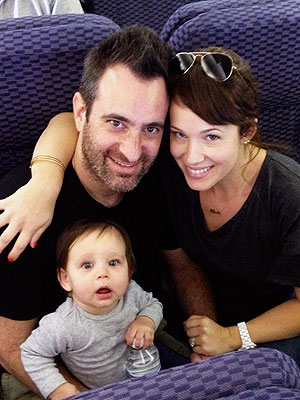ALGIERS/BAMAKO (Reuters) - Some hostages were reported to have escaped from a remote Algerian gas plant on Thursday, where dozens of foreigners and scores of Algerians were seized by Islamist gunmen demanding a halt to a French military campaign in neighboring Mali.
Governments around the world were holding emergency meetings to respond to one of the biggest international hostage crises in decades, which sharply raises the stakes over the week-old French campaign against al Qaeda-linked rebels in the Sahara.
Algeria's Ennahar television said 15 foreigners, including two French citizens, had escaped the besieged plant deep in the Sahara desert. About 40 Algerians had also been freed, mainly women working as translators, it said.
A security source told Reuters the captors, encircled by Algerian troops, were demanding safe passage out with their prisoners. Algeria has refused to negotiate.
A group calling itself the "Battalion of Blood" says it seized 41 foreigners, including Americans, Japanese and Europeans, after storming a natural gas pumping station and employee barracks before dawn on Wednesday.
The attackers have demanded an end to the French military campaign in Mali, where hundreds of French paratroops and marines are launching a ground offensive against rebels a week after Paris began firing on militants from the air.
Algerian Interior Minister Daho Ould Kablia said the raid was led by Mokhtar Belmokhtar, a veteran Islamist guerrilla fighter who fought Soviet forces in Afghanistan in the 1980s and had recently set up his own group in the Sahara after falling out with other local al Qaeda leaders.
A holy warrior-cum-smuggler dubbed "The Uncatchable" by French intelligence and "Mister Marlboro" by some locals for his illicit cigarette-running business, Belmokhtar's links to those who seized towns across northern Mali last year are unclear.
The hostage takers appear to have allowed some prisoners to speak to the media to put pressure on Algerian forces not to storm the compound. An unidentified hostage who spoke to France 24 television said prisoners were being forced to wear explosive belts. Their captors were heavily armed and had threatened to blow up the plant if the Algerian army tried to storm it.
"They attacked the two sites at the same time. They went inside, and once it was daylight they gathered everyone together," the man, who sounded calm, said in the only part of the phone call the French broadcaster aired.
Another hostage, identified as British, spoke to Al Jazeera television and called on the Algerian army to withdraw from the area to avoid casualties.
"We are receiving care and good treatment from the kidnappers. The (Algerian) army did not withdraw and they are firing at the camp," the man said. "There are around 150 Algerian hostages. We say to everybody that negotiations is a sign of strength and will spare many any loss of life."
Another hostage, identified as Irish, told the Qatar-based channel the hostages included French, American, Japanese, British, Irish and Norwegian citizens.
"The situation is deteriorating. We have contacted the embassies and we call on the Algerian army to withdraw ... We are worried because of the continuation of the firing."
After what it said was a phone interview with one of the hostage takers, the Mauritanian news agency ANI said Algerian security forces had tried to approach the facility at dawn.
"We will kill all the hostages if the Algerian army try to storm the area," it quoted the hostage taker as saying. Algeria has not commented on reports its troops tried to approach.
NUMBERS UNCONFIRMED
The precise number and nationalities of foreign hostages could not be confirmed, with some countries reluctant to release information that could be useful to the captors.
British Foreign Secretary William Hague confirmed one British citizen had been killed and "a number" of others were among those held. Algerian media said an Algerian was killed in the assault. Another local report said a Frenchman had died.
The militants said seven Americans were among their hostages, a figure U.S. officials said they could not confirm.
Norwegian oil company Statoil said nine of its Norwegian staff and three Algerian employees were captive. Britain's BP, which operates the plant with Statoil and Algerian state oil company Sonatrach, said some of its staff were held but would not say how many or their nationalities.
Japanese media said five workers from Japanese engineering firm JGC Corp. were held. France has not confirmed whether any French citizens were captive. Vienna has said one hostage is an Austrian working for BP.
"This is a dangerous and rapidly developing situation," Britain's Hague told reporters in Sydney.
U.S. Defense Secretary Leon Panetta said Washington "will take all necessary and proper steps that are required to deal with this situation". Japan's Prime Minister Shinzo Abe said "Japan will never tolerate such an act".
France's ambassador to Mali, Christian Rouyer, said the attack in Algeria demonstrated that the French were right on the need to intervene in Mali.
"We have the flagrant proof that this problem goes beyond just the north of Mali," Rouyer told France Inter radio. "Northern Mali is at heart of the problem, of course, but the dimension is really national and international, which gives even more justification to the French intervention."
Hollande has received backing from Western and African allies who fear that al Qaeda, flush with men and arms from the defeated forces of Libya's Muammar Gaddafi, is building a desert haven in Mali, a poor country that was helpless to combat fighters who seized its northern cities last year.
The Algerian government has ruled out negotiating with the hostage takers, and the United States and other Western governments condemned the attack on a facility that produces 10 percent of Algeria's gas, much of which is pumped to Europe.
The militants, communicating through established contacts with media in neighboring Mauritania, said they had dozens of men armed with mortars and anti-aircraft missiles in the compound and had rigged it with explosives.
They said they had repelled a raid by Algerian forces after dark on Wednesday. There was no government comment on that. Algerian officials said earlier about 20 gunmen were involved.
GOVERNMENTS HELD RESPONSIBLE
"We hold the Algerian government and the French government and the countries of the hostages fully responsible if our demands are not met, and it is up to them to stop the brutal aggression against our people in Mali," read one statement carried by Mauritanian media.
They condemned Algeria's secularist government for letting French warplanes fly over its territory to Mali. They also accused Algeria of shutting its border to Malian refugees.
Regis Arnoux, head of CIS, a French catering firm operating at the site, told BFM television he had been in touch with a manager of some 150 Algerian workers there. Local staff were being prevented from leaving but were otherwise free to move around inside and keep on working.
"The Westerners are kept in a separate wing of the base," Arnoux said. "They are tied up and are being filmed. Electricity is cut off, and mobile phones have no charge.
"Direct action seems very difficult ... Algerian officials have told the French authorities as well as BP that they have the situation under control and do not need their assistance."
Japan's JGC Corp. said in a statement it was cooperating with the government and would not comment on the number of its employees kidnapped.
In Mali, France said on Wednesday its forces were about to launch a ground assault on the rebels they began targeting from the air last week. Residents said a column of about 30 French Sagaie armored vehicles set off toward rebel positions from the town of Niono, 300 km (190 miles) from the capital, Bamako.
The French action has widespread international support. Neighboring African countries are expected to provide ground troops soon. Germany, Britain and the Netherlands have offered transport aircraft. Washington has said it is considering what kind of support it can offer France.
Many inhabitants of northern Mali have welcomed the French attacks, though some also fear being caught in the cross-fire. The Mali rebels who seized Timbuktu and other oasis towns in northern Mali last year imposed Islamic law, including public amputations and beheadings that angered many locals.
"There is a great hope," one man said from Timbuktu, where he said Islamist fighters were trying to blend into civilian neighborhoods. "We hope that the city will be freed soon."
The rebels include fighters from al Qaeda's mainly Algerian-based North African wing AQIM as well as home-grown Malian groups Ansar Dine and MUJWA. Islamists have warned Hollande that he has "opened the gates of hell" for all French citizens.
A day after launching the campaign in Mali, Hollande also ordered a raid in Somalia on Saturday to free a French hostage held there by al Qaeda-linked al Shabaab militants since 2009. That rescue was a failure, with two French commandos killed.
Al Shabaab said on Thursday it had executed its hostage, Denis Allex. France says it believes Allex died in the rescue attempt.
(Additional reporting by Pascal Fletcher, Andrew Callus and Dmitry Zhdannikov in London, Balazs Koranyi in Oslo, Laurent Prieur in Nouakchott, Daniel Flynn in Dakar, John Irish, Catherine Bremer, Marine Pennetier, and Nick Vinocur in Paris, David Alexander in Rome, Andrew Quinn in Washington, Jane Wardell in Sydney, Omar Fahmy in Cairo, Mirna Sleiman in Dubai and Kaori Kaneko in Tokyo; Writing by Peter Graff; Editing by Will Waterman)














